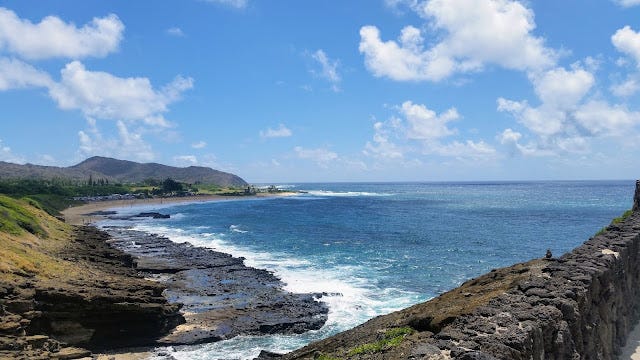Learning on Vacation: Advice from My Rosh ha'Yeshiva
Originally published in June of 2007. Click here for a printer-friendly version of this blog post.
Learning on Vacation: Advice from My Rosh ha'Yeshiva
Every summer I visit my grandmother in Hawaii. We're usually here for around ten days or so. Although I try to keep up with some of my chavrusas (learning partners) over the phone during this time, it's not always feasible to do so. Our schedule is erratic, and the time difference can make things difficult.
When this Hawaii trip first became an annual thing, I used to be in conflict about my augmented learning schedule - especially during my early years in yeshiva, when I'd make a summer learning schedule for myself which was sometimes more rigorous than my schedule during the year!
Thankfully, I heard some secondhand advice from my Rosh ha'Yeshiva about how to resolve this conflict.
A friend of mine told me that he once asked our Rosh ha'Yeshiva: “How much should a person learn while on vacation?” My Rosh ha'Yeshiva answered:
“Enough to bypass the guilt. Learn for a few hours in the morning to get rid of the guilt so that you can enjoy yourself on your vacation for the rest of the day. That’s what Rabbi Moskowitz and I would do back when we used to go camping in New Hampshire. We would learn for a few hours in the morning and then spend the afternoon hiking.”
What I like about this answer is its honest, realistic attitude towards human nature. While my Rosh ha'Yeshiva's answer might not be appropriate for people like Moshe Rabbeinu, the Rambam, or Rav Moshe Feinstein, it is the perfect answer for people like us (well, at least like me - I can't speak for everyone else).
To attempt to stick to my usual learning schedule during my stay in Hawaii would be a waste of the vacation. I am human, and I need a break from time to time. I have been given the opportunity to spend some time in Hawaii, and I might as well take advantage of it.
Not only that, but spending my vacation learning intensively - all cooped-up indoors - would be bad for my learning. I certainly would not be able to concentrate, knowing that the bright sun and beautiful water and mountains are waiting outside. On the other hand, to spend the entire ten days doing nothing but enjoying my vacation would be bad for my learning. Moreover, as my Rosh ha'Yeshiva mentioned, the guilt of not learning would spoil the enjoyment of my vacation.
On a related note, I once heard someone ask my Rosh ha'Yeshiva: “When I go on vacation, should I bring seforim (books)?” My ears perked up when I heard this question, because - at the time - I was in the habit of bringing tons of seforim with me to learn while on vacation.
My Rosh ha'Yeshiva’s answer, plain and simple, was:
“Only bring seforim if you’re going to use them. Otherwise, it’s a waste of space. There are guys who pack tons of seforim and picture themselves learning up a storm on their vacations. When they actually get there, they barely even touch the seforim they brought.”
Then he added:
“Instead of bringing a lot of seforim, bring some good ideas to think about and work on. They don’t take up any space, and you'll have them with you for the entire vacation.”
My Rosh ha'Yeshiva's answer to both questions was essentially: “Be realistic” – a good rule of thumb in any circumstance. We are human beings - not angels.




